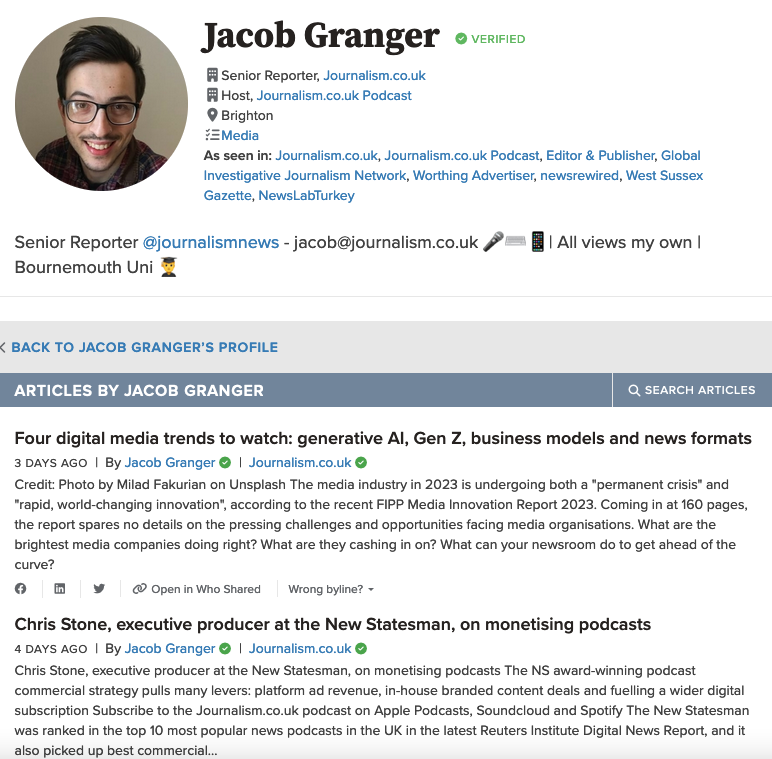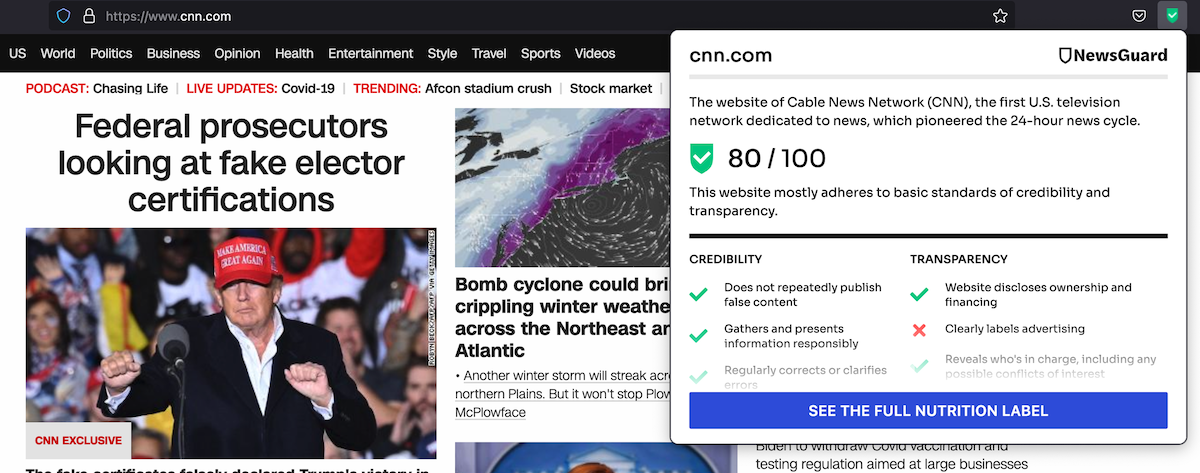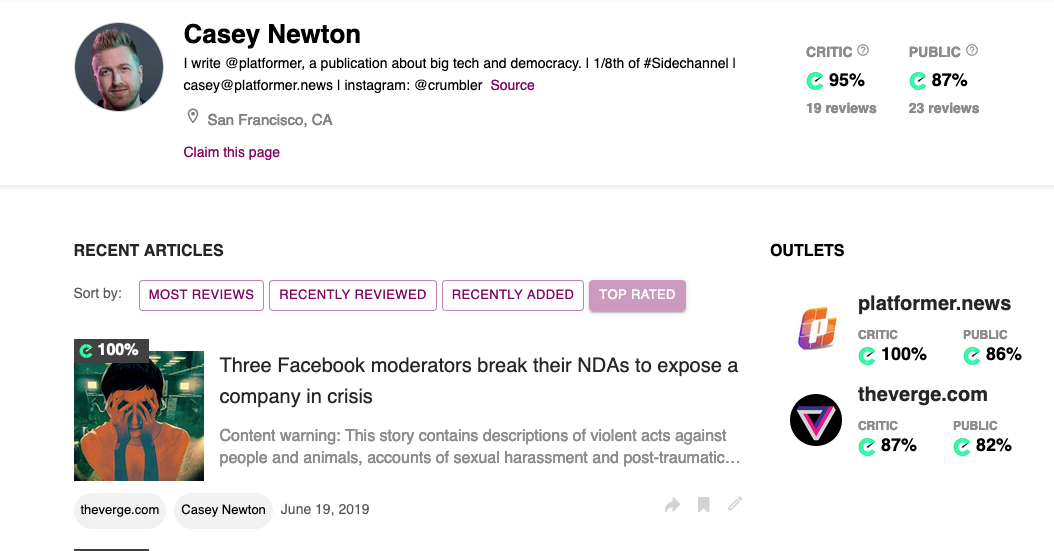
Last week we saw a curious story about Bournemouth Observer. On the face of it, this sounds like a legitimate news website. It is filled with ostensibly real adverts, articles and editorial sections. Pictures of suited-up middle-aged male editors give the final impression that this is a credible operation.
The problem is, it is not. It emerged that Bournemouth Observer was a fake news site that had used stock photos for its editors and, apparently, AI-powered tools to cobble together articles.
Long-serving local journalists weighed in, arguing that they had never heard of the names on its editorial team. But it is one thing for bonafide journalists to be able to spot a spoof news site. It is another for an average reader.
If this is a sign of the times ahead, perhaps it is an idea to inform your readers about the markers of trust, credibility and authenticity as a news brand.
IPSO
Press regulator IPSO provides an industry benchmark through its Editor's Code of Practice. Any news outlet that has joined the organisation means that readers have access to IPSO's complaints handling process for any grievances towards news reporting.
Member news organisations tend to publish the IPSO emblem and a statement, normally tucked away at the bottom of websites. Another problem with this is that it requires readers to have a basic understanding of regulation, news literacy and complaints handling.

IMPRESS
It is a similar deal with IMPRESS. It is a press regulator, more aimed at non-profit, independent news outlets. Partnering members also have an icon they can publish on their website with details on how to raise complaints, this time using the IMPRESS standards code.

Muck Rack
Like it or loathe it, if you are a journalist, you have a free profile on Muck Rack that is probably pretty accurate. If there are any errors, you should contact the Muck Rack team.
News websites, understandably, prefer to link their journalists on the 'meet the editorial team' page to their Twitter or Instagram profile. That does work. But Muck Rack is an alternative that shows up a verified reporter with links to a comprehensive publishing history.

NewsGuard
"Internet trust tool" NewsGuard provides reliability and credibility scores for a range of websites, including news websites. It uses a team of trained journalists and nine criteria to generate a NewsGuard rating score between 0-100. It claims to have reviewed 8,000 websites accounting for 95 per cent of news and information consumed across six major countries.
This is best used as a browser extension, which shows the trust score of links on social media, search engines and other platforms. The downside is that this costs news readers £4.95 after a fortnight trial.
The obvious problem is that the UK struggles with getting readers to pay for news, let alone a supplementary news verification product.

Screenshot from NewsGuard
Journalism Trust Initiative
The Journalism Trust Initiative (JTI) is operated by press freedom watchdog Reporters Without Borders (RSF) and certified by the auditor ABC in the UK. This is an international standard of trustworthy journalism. The ultimate goal of the JTI is to support the right to information by making it easier for citizens to identify reliable media.
Publishers wanting to show they comply with the JTI Standard start by completing a free self-evaluation. The self-evaluation involves answering 130 questions and then publishing the results in a JTI transparency report. This first step helps media outlets prepare for the subsequent audit needed to obtain JTI Certification. During the audit process, newsrooms are asked to make any adjustments needed to achieve certification.
Credder
'Rotten Tomatoes for news' site Credder is a platform that is driven by reader reviews. Both critics (verified journalists) and the public can rate articles and authors based on a variety of factors. The score, therefore, is a mixture of opinion and judgment.
This all boils down to a total credibility leaderboard score for authors, news outlets and individual articles. Credder freely compiles listings of many top journalists, who can claim their pages at any point. It is mostly US-centric.

Is there a tool we should be listing? Let us know
Note: this piece was updated on 26 July 2023 to add another resource
Free daily newsletter
If you like our news and feature articles, you can sign up to receive our free daily (Mon-Fri) email newsletter (mobile friendly).
Related articles
- News media must change tactics when fighting false information to protect democracy
- How eco-friendly is your news website? This tool lets you know
- Nine AI hacks for newsroom leaders to promote employee wellbeing
- How The Economist reached young audiences through new formats and brand marketing
- What the Financial Times learned from experimenting with AI









